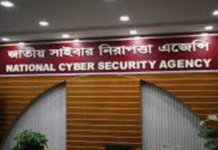Bangladesh ranks 13th most corrupt country in TI index
 Bangladesh has gone four notches down in the Berlin-based Transparency International’s Corruption Perceptions Index (CPI) 2018, ranking 13th most corrupt country of the world.
Bangladesh has gone four notches down in the Berlin-based Transparency International’s Corruption Perceptions Index (CPI) 2018, ranking 13th most corrupt country of the world.
Bangladesh was ranked 143rd in 2017’s CPI with a score of 28 points.
On a scale of zero to 100, Bangladesh has scored 26, declined by two points, which are equal to the country’s score in 2016.
A report recently published by the Transparency International reads, “Since 2017, several countries in the Asia Pacific region declined by two to three points, including Bangladesh (26), Maldives (31) and Vietnam (33), Timor-Leste (35).”
Bangladesh is just above the war-ravaged Afghanistan in the South Asia.
“Unfortunately, these countries share several common factors that work to counteract anti-corruption efforts. These include a lack of strong and independent democratic institutions that can deliver checks and balances, and a strong-handed central government that limits or suppresses free and open media and citizen participation, the report also says.
“As the performance of democratic institutions weakens and political rights decline, corruption festers and grows,” it adds.
Despite stagnation and declines in the 2018 scores, according to the TI, India has been raked 78 with a score of 41 while Pakistan scored 33, Malaysia 47 and Maldives 31.
The TI report also says that these countries ‘will be important to watch moving forward.’
Transparency International Bangladesh’s executive director Iftekharuzzaman said, “The cause behind the increase in corruption is lack of implementation of the political promises and postures. There are rare examples of bringing the big shots to the book.”
The TIB executive director said this on Tuesday after a
He said, unabated corruption in the banking sector, fraudulence, land and water body grabbing and political control in the government’s procurement sector are getting a safe-side due to political affiliations.
“Anti-Corruption Commission (ACC) and other supervisory bodies of the government are weak. The space for the media and civil society outlets are shrinking gradually,” he added.









